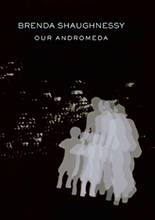Nothing makes us happier here at Malvern than frantically tearing open carefully unpacking a shipment of lovely new books—and these recent arrivals from Copper Canyon Press certainly produced an immoderate amount of booksellers’ glee. Copper Canyon have been publishing poetry since 1972, and their titles include renowned and emerging American poets, poetry in translation, anthologies, and re-issues of classic collections. Let’s take a look at the cream of the Copper now gracing our shelves…

The Moon before Morning by W.S. Merwin ($24; hardback)—a stunning new collection from our seventeenth Poet Laureate. Lyrical, elegant, and transcendent, the poems in this volume suggest that, at the age of eighty-six, two-time Pulitzer Prize winner Merwin is writing some of the best poetry of his life.
Upgraded to Serious by Heather McHugh ($22; hardback)—McHugh’s eighth collection was honored as a “Book of the Year” by Publishers Weekly. These poems are frank and funny, full of fast-paced banter and linguistic acrobatics.
Radio Crackling, Radio Gone by Lisa Olstein ($15; paperback)—winner of Copper Canyon’s 2005 Hayden Carruth Award for New Emerging Poets, Radio Crackling creates a dreamscape filled with paradox and uncertainty, and guides the reader through this eerie world with remarkable intelligence and energy.

Human Dark with Sugar by Brenda Shaughnessy ($15; paperback)—winner of the James Laughlin Award for the best second book of poems by an American poet (no sophomore slump here!), Human Dark with Sugar shuns sentimentality in favor of forthright, sexy, self-aware verse that somehow feels both playfully improvisational and assiduously controlled.
Crow with No Mouth by Ikkyū ($14; paperback)—Fifteenth-century Zen master Ikkyū Sojun only lasted nine days as headmaster of the great temple at Kyoto… and when he quit he invited his fellow monks to look for him in the sake parlors of the Pleasure Quarters. His short poems are as bawdy and robust as you’d expect from an iconoclastic ex-monk who despised authority and revered erotic love.
The Monster Loves His Labyrinth by Charles Simić ($14; paperback)—a collection of the 2007 U.S. Poet Laureate’s notebook entries, this book offers a fascinating glimpse into the preoccupations of one of our most acclaimed poets. These epigrams and vignettes offer moments of stunning beauty interspersed with biting humor.

 If you’ve made a New Year’s resolution to read more poetry (and I certainly hope you have), may I recommend you kick-start your new poetic regime by picking up a copy of
If you’ve made a New Year’s resolution to read more poetry (and I certainly hope you have), may I recommend you kick-start your new poetic regime by picking up a copy of